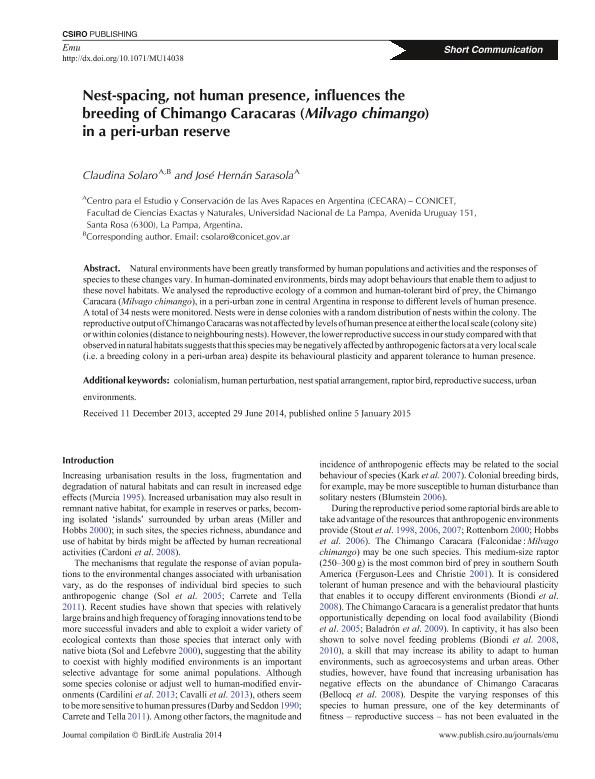Artículo
Nest-spacing, not human presence, influences the breeding of Chimango Caracaras (Milvago chimango) in a peri-urban reserve
Fecha de publicación:
01/2015
Editorial:
Taylor & Francis
Revista:
Emu
ISSN:
0158-4197
Idioma:
Inglés
Tipo de recurso:
Artículo publicado
Clasificación temática:
Resumen
Natural environments have been greatly transformed by human populations and activities and the responses of species to these changes vary. In human-dominated environments, birds may adopt behaviours that enable them to adjust to these novel habitats. We analysed the reproductive ecology of a common and human-tolerant bird of prey, the Chimango Caracara (Milvago chimango), in a peri-urban zone in central Argentina in response to different levels of human presence. A total of 34 nests were monitored. Nests were in dense colonies with a random distribution of nests within the colony. The reproductive output of Chimango Caracaras was not affected by levels of human presence at either the local scale (colony site) or within colonies (distance to neighbouring nests). However, the lower reproductive success in our study compared with that observed in natural habitats suggests that this species may be negatively affected by anthropogenic factors at a very local scale (i.e. a breeding colony in a peri-urban area) despite its behavioural plasticity and apparent tolerance to human presence.
Archivos asociados
Licencia
Identificadores
Colecciones
Articulos(INCITAP)
Articulos de INST.D/CS D/L/TIERRA Y AMBIENTALES D/L/PAMPA
Articulos de INST.D/CS D/L/TIERRA Y AMBIENTALES D/L/PAMPA
Citación
Solaro, Claudina; Sarasola, José Hernán; Nest-spacing, not human presence, influences the breeding of Chimango Caracaras (Milvago chimango) in a peri-urban reserve; Taylor & Francis; Emu; 115; 1; 1-2015; 72-75
Compartir
Altmétricas




